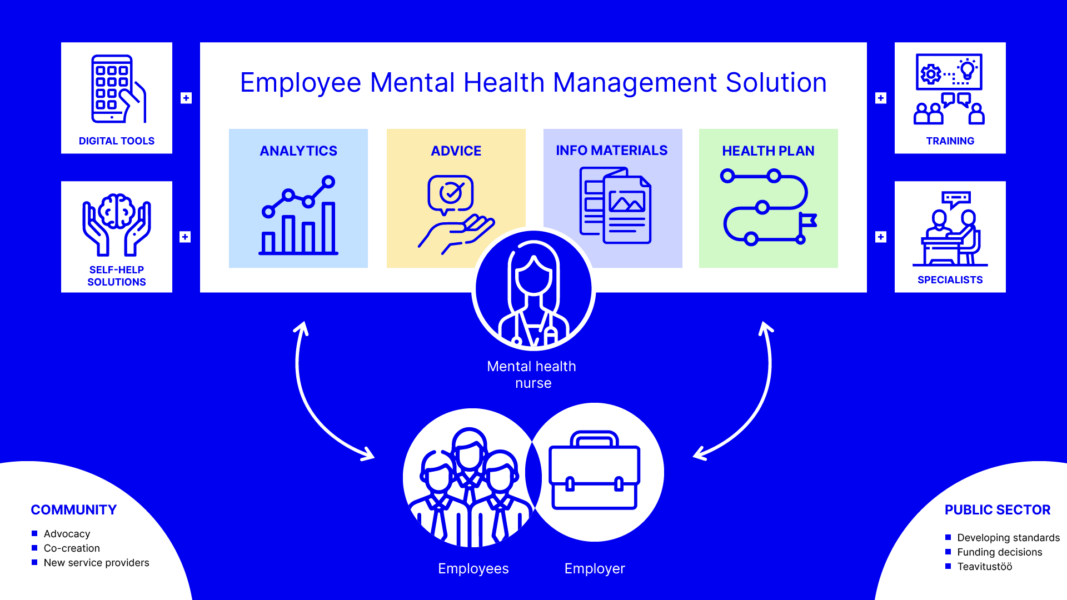Surveys reveal that 25% of workers experience mental health issues annually, highlighting a growing concern about workplace mental health and burnout. As this issue gains prominence globally, finding effective ways to manage and support employees’ mental health has become crucial.
Heba
Managing employee mental health
At the time of carrying out this project, Accelerate had a wider goal of supporting public/private partnerships, which later evolved to a more narrow focus on unlocking new markets by overcoming regulatory barriers.

Introduction
Problem
One major challenge for employers is the lack of adequate support and confusion in guiding employees who seek to manage their mental health or address early-stage concerns.
Poorly managed mental health costs European employers €260 billion annually (1.6% of GDP), leading to increased absenteeism, a higher likelihood of long-term incapacity, and a greater risk of employment termination, of course having a significant effect on the economy.
Compounding this issue is the shortage of mental health specialists amidst a rising number of individuals needing support. While governments are actively shaping workplace health policies, and employers have a responsibility to prioritize the well-being of their employees, there is a greater need for integrating effective solutions, such as platforms that allow individuals to monitor and manage their mental health more easily.
Solution
To address these challenges, Heba, alongside Accelerate Estonia is developing a network-based model for employee mental health management.
This model will feature a collaborative digital platform supported by a network of various support and consulting services. It aims to facilitate early detection and timely intervention for mental health issues, tailored to both employees and employers. The model will also clarify the roles and responsibilities of all parties involved, from employers to public sector agencies.
End Goal
The ultimate goal is to establish a sustainable model for managing employee mental health, refined through experimentation. This model will enhance coordination among employers, employees, and public sector representatives, ensuring effective support and intervention. Successful implementation will improve workplace mental health management and serve as a reference for other contexts, benefiting businesses, employees, and the state by reducing healthcare costs and boosting productivity.
Outcome
Based on the model developed with 39 experts, including those from the public sector, a consensus-driven Standard for Corporate Mental Health Management was established.

In the final phase of the experiment, specific proposals were created to enhance employee mental health management through a network-based collaborative model.
A prototype was piloted with employees from four large companies, leading to a proposal for a workplace mental health standard submitted to the Estonian Ministry of Social Affairs.


